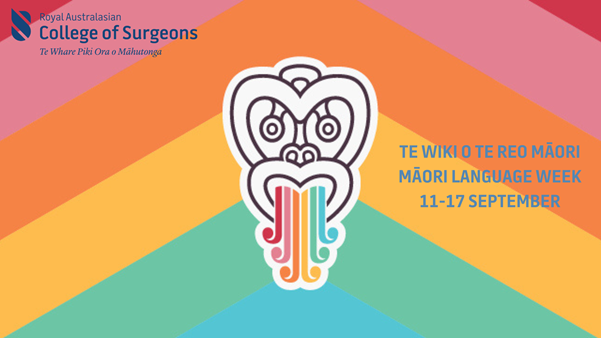2023 | Volume 24 | Issue 5

Te Wiki o te Reo Māori – Māori Language Week is over for another year.
This year it ran from 11 to 17 September and, as a binational College, RACS shared with our people simple ways they could engage with te reo—no matter which side of the Tasman they’re based.
The team in Aotearoa New Zealand went even further and had a full week of activities, organised by Māori Health Project Officer Dr Ruth Herd, including a rapu taonga (treasure hunt) and kai hākari (a shared meal). The highlight was a hikoi (guided walking tour) of Te Whanganui-a-Tara Wellington, which uncovered some of the hidden treasures in the city including remains of the fortified settlement of Te Aro Pā on which much of central Wellington is built.
Cultural competency is one of RACS 10 competencies and engaging with patients and colleagues in a language familiar to them is an excellent way of connecting. Most people from Aotearoa New Zealand, even Māori, are not fluent in te reo, but increasingly many are incorporating simple words and phrases into their everyday vernacular.
Here are 50 of the most commonly used Māori words: https://bit.ly/50Maoriwords
It’s one thing reading the words but pronouncing them is something different. Watch some short clips to help you learn how to pronounce the sounds: https://bit.ly/pronouncingtereo
What is Te Wiki o te Reo Māori?
Te Wiki o te Reo Māori is a government-sponsored initiative, which is celebrated annually with events, exhibitions and experiences held across the motu (country).
The first Māori Language Day was more than 50 years ago, in 1972. Three years later, it become what we now know as Te Wiki o te Reo Māori.
Read the open letter by Māori Language Commissioner Professor Rawinia Higgins, which reminds us why Māori Language Week is important: https://bit.ly/3t5iI0d
“Te reo is unique to us. It comes from here, it belongs here and it should make all of us know we are home,” Professor Rawinia Higgins said.